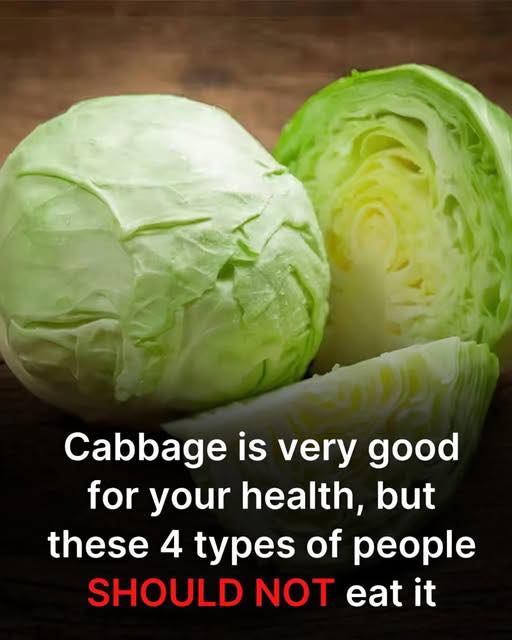But—and this is a big but—not all bodies respond to cabbage in the same way. For certain people, especially those over 60 dealing with age-related health changes, cabbage may actually trigger health problems if consumed in large amounts or too often.
When Cabbage Could Be Harmful: 4 Types of People Who Should Be Careful
Cabbage might look innocent on your plate—but for some, its compounds and natural chemicals can stir up issues that are best avoided.
Let’s break down who should think twice before reaching for that second helping of cabbage soup.
1. People with Thyroid Issues: How Cabbage Can Interfere
If you’ve been diagnosed with thyroid problems like hypothyroidism or goiter, cabbage might be working against you without you realizing it.
Cabbage contains a substance called goitrin, which can disrupt the thyroid’s ability to produce hormones. Over time, this interference may cause the thyroid gland to swell—leading to complications that especially affect older adults, such as fatigue, weight gain, and cold sensitivity.
But that doesn’t mean you have to give it up completely.
Here’s a tip: Soaking cabbage in salted water for about 10–15 minutes before cooking can help reduce its goitrin content. Finely chopping or steaming it can also help neutralize its effects.
Still, it’s best to talk with your doctor or endocrinologist before making cabbage a regular part of your diet if your thyroid is already under strain.
2. People with Digestive Disorders: When Fiber Does More Harm Than Good
Cabbage is rich in fiber, which is typically a good thing—especially for regularity and gut health.
But for people with sensitive digestive systems, irritable bowel syndrome (IBS), chronic diarrhea, or frequent bloating, cabbage can act more like a trigger than a helper.
Its natural sugars and high fiber content can lead to gas, cramping, and discomfort. For seniors already dealing with slower digestion or a finicky stomach, that’s a recipe for distress.
If this sounds like you, gentler vegetables like steamed carrots, peeled zucchini, or mashed sweet potatoes might be better options. They’re softer on the system and still give you essential vitamins without the upset.
